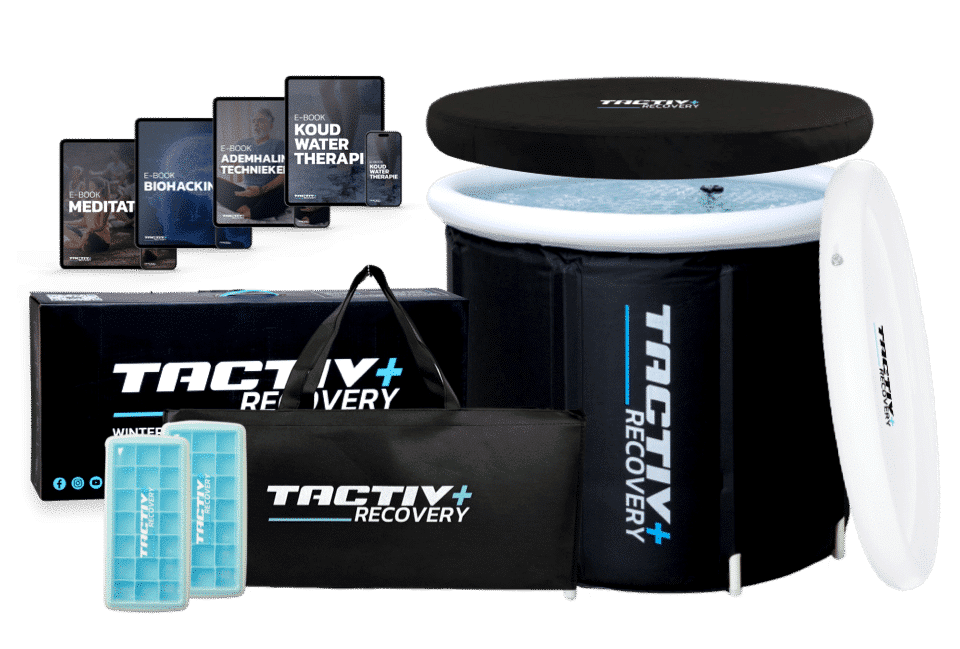Fixed and growth mindset: the two paths of personal development
Welcome to this in-depth exploration of the crucial differences between a fixed mindset and growth mindset. In this blog post, we will explore the fundamentals of these two mindsets, discuss their impact on ambition and well-being, and how to transition from a fixed to a growth mindset. Let’s start by understanding the fundamentals.
The fundamentals: what are fixed and growth mindsets?
A mindset is the set of beliefs and attitudes that determine how we view ourselves, our abilities and the world around us. Fixed and growth mindsets represent two extremes of this spectrum.
The core of a fixed mindset
People with a fixed mindset believe that their intelligence and abilities are fixed and unchanging. They see challenges as threats and avoid risk because they fear failure. Mistakes are seen as evidence of incompetence, and they give up quickly when something becomes difficult.
The essence of a growth mindset
Unlike a fixed mindset, people with a growth mindset believe that intelligence and skills can be developed through effort, dedication and perseverance. They embrace challenges as opportunities to grow and see failures as learning opportunities. They remain persistent even when something is difficult and see effort as the path to mastery.
The two faces of ambition: fixed vs. growth
Ambition is a driving force in personal development. Let’s see how a fixed and growth mindset affects this ambition. The two different mindsets are very different of course but they also affect each other in some way.
How a fixed mindset limits ambition
An example of how a fixed mindset can limit ambition can be seen in someone who believes that intelligence and skills are fixed and cannot change. In this case, the person may be reluctant to take on new challenges because they fear failure and being seen as incompetent.
This limiting belief may keep them from pursuing ambitious goals. Instead of embracing challenges and pursuing their dreams, people with a fixed mindset may limit themselves by clinging to what they already know. As a result, they miss opportunities for personal growth and limit their own performance potential.
How a growth mindset fuels ambition
A growth mindset encourages ambition by believing in the power of effort and growth. people with a growth mindset embrace challenges and see them as opportunities to expand their capabilities. this encourages them to pursue ambitious goals and be willing to learn and grow.
The psychological impact: fixed vs. growth
In addition to ambition, our mindset also has a profound impact on our mental health. Let’s take a deeper look at the psychological impact of a fixed mindset compared to a growth mindset.
The mental prison of a fixed mindset
A fixed mindset can lead to anxiety, perfectionism and a lack of self-confidence. People feel trapped in their own beliefs and avoid challenges for fear of failure. This can lead to stress and frustration.
People with a fixed mindset view their intelligence and skills as fixed. As a result, they are afraid to prove themselves and accept failure because this would mean they are not as capable as they want to believe. This fear of failure can be paralyzing, causing them to avoid new opportunities and challenges.
Perfectionism is also a common characteristic of a fixed mindset. Because they believe they should be inherently competent, they strive for perfection and have difficulty dealing with imperfections. This perfectionism can lead to anxiety, depression and a constant feeling of inadequacy.
A lack of self-confidence is another consequence of a fixed mindset. If you believe that your abilities are fixed, you will not easily challenge yourself or try to develop new skills. This lack of self-confidence can affect all aspects of life, from personal relationships to professional success.
The mental freedom of a growth mindset
A growth mindset frees individuals from these mental limitations. They embrace challenges with confidence and see failure as an opportunity to grow. This leads to a greater sense of mental freedom and well-being.
People with a growth mindset believe they have control over their growth and development. They understand that intelligence and skills can be improved through effort and dedication. This changes the way they approach challenges. Instead of being fearful of failure, they see it as an opportunity to learn and grow.
This sense of mental freedom extends to other aspects of life. People with a growth mindset are willing to take risks and try new things because they believe in their ability to learn and improve. They are more resilient in dealing with setbacks and experience less stress and anxiety.
The ability to confidently face challenges and grow as a person contributes to a more positive self-image and better mental health. People with a growth mindset generally experience a greater sense of well-being and satisfaction in their lives.
The mental prison of a fixed mindset
A fixed mindset can lead to anxiety, perfectionism and a lack of self-confidence. People feel trapped in their own beliefs and avoid challenges for fear of failure. This can lead to stress and frustration. This can feel like you are in a mental prison because you are unwilling and unable to move outside your comfort zone. But remember that you have the keys to this mental cell and can be free when you determine to step out. This does require mental changes in your mindset and it is not done overnight.
The mental freedom of a growth mindset
A growth mindset frees individuals from these mental constraints. They embrace challenges with confidence and see failure as an opportunity to grow. This leads to a greater sense of mental freedom and well-being. They see failure as learning opportunities and embrace them with love. Every downside has its upside, which is how people with a growth mindset see the world when things get tough.
The transition: fixed vs. growth
The good news is that your mindset is not a fixed one. You can make the transition from a fixed to a growth mindset. However, this is a process you have to fully commit to. But it can provide many positive effects.
The tipping point: Changing mindset
The tipping point, or the moment when you decide to change your mindset, is a crucial step toward personal growth. Here’s a simple roadmap for moving from a fixed to a growth mindset:
- Self-awareness: First, acknowledge your current mindset and recognize limiting beliefs.
- Research: Research the benefits of a growth mindset and understand that talent and intelligence can grow.
- Positive self-talk: Be aware of negative self-talk and replace it with positive, growth-oriented thoughts.
- Embrace challenges: See obstacles and challenges as opportunities to learn and grow.
- Perseverance: Develop perseverance and don’t let setbacks discourage you.
- Learn from feedback: Value feedback as a way to improve, not as criticism.
- Keep learning: Stay open to new knowledge and skills and keep developing yourself.
Changing your mindset takes time and practice, but it can have a transformative effect on your life, support your ambitions and help you grow both personally and professionally. The tipping point is the beginning of an exciting journey to a positive, growth-oriented mindset in life.
The role of resilience in mindset change
Mental resilience plays an essential role in the process of mindset change. When we strive to shift from a fixed to a growth mindset, we often face challenges and inner resistance. Mental resilience enables us to overcome these obstacles. It helps us to remain resilient in the face of setbacks and disappointments, and to persevere with determination even when the going gets tough. Mental resilience provides the willpower and perseverance needed to actually change our mindset and move toward a more growth-oriented approach to life. It allows us to be flexible and learn from our experiences, which is essential for sustainable and positive mindset change.
Mindsets and personal development: the journey of self-discovery
Your mindset has a profound impact on your personal development. Let’s see how it affects your journey of self-discovery.
Fixed mindset and self-limitation
A fixed mindset can lead to self-limitation. People with this mindset believe that their qualities are fixed, which discourages them from taking on challenges. They avoid situations in which they can fail, which limits their growth. This results in missed opportunities for personal development and success. It is important to become aware of a fixed mindset and transform it to a growth mindset to overcome self-limitation and reach your full potential.
Growth mindset as a compass for self-development
A growth mindset acts as a compass for self-development. It enables you to believe in your potential and encourages you to develop new skills and grow as a person.
Mindsets and well-being: a health check
Mindsets play a crucial role in our well-being. A positive mindset, such as a growth mindset, can reduce stress and increase resilience. It enables individuals to approach challenges as opportunities for personal growth, which promotes psychological health. On the other hand, a fixed mindset can lead to avoidance behaviors and fear of failure, which is detrimental to well-being. It is essential to regularly conduct a “health check” of your mindset and consciously work to cultivate a growth mindset for better overall well-being.
How mindset affects your health
Mindsets, or the beliefs we hold about our abilities and the world around us, play a crucial role in shaping our health. The difference between a fixed mindset and a growth mindset can have significant effects on both our physical and mental well-being.
A fixed mindset, believing that intelligence and skills are fixed and cannot change, can take a heavy toll on health. It can lead to stress and anxiety as individuals fear failure or being judged for their immutable abilities. In turn, this stress and anxiety can have negative effects on the body, such as increased blood pressure and a weakened immune system. This vicious cycle of negative emotions can lead to decreased quality of life and increased risk of health problems.
On the other hand, a growth mindset is beneficial for both mental and physical health. It promotes resilience, optimism and a positive outlook on challenges. Individuals with a growth mindset are more likely to manage stress better and deal with setbacks more effectively. This has a positive effect on their mental well-being, making them less prone to depression and anxiety.
Moreover, an optimistic outlook on life has beneficial physiological effects. It can lead to better heart health, a stronger immune system and even a longer life. People with a growth mindset see setbacks as opportunities to learn and grow, leading to improved mental health.
In short, our mindset has a significant impact on our health. Cultivating a growth mindset can help reduce stress, improve mental health and promote general well-being. It emphasizes the importance of developing a positive view of our abilities and ability to grow and change.
The choice is yours: fixed or growth?
In this blog post, we have explored the crucial differences between a fixed and growth mindset and how they affect ambition, well-being and personal development. The choice of your mindset is up to you. If you are striving for personal growth, consider transitioning to a growth mindset. It is the path to greater ambition, well-being and greater potential. The choice is yours: fixed or growth? Which do you choose?
Are you looking for an Ice Bath?
Check out our ice bath bundles now and receive an instant discount with the code “TACTIV10”.

